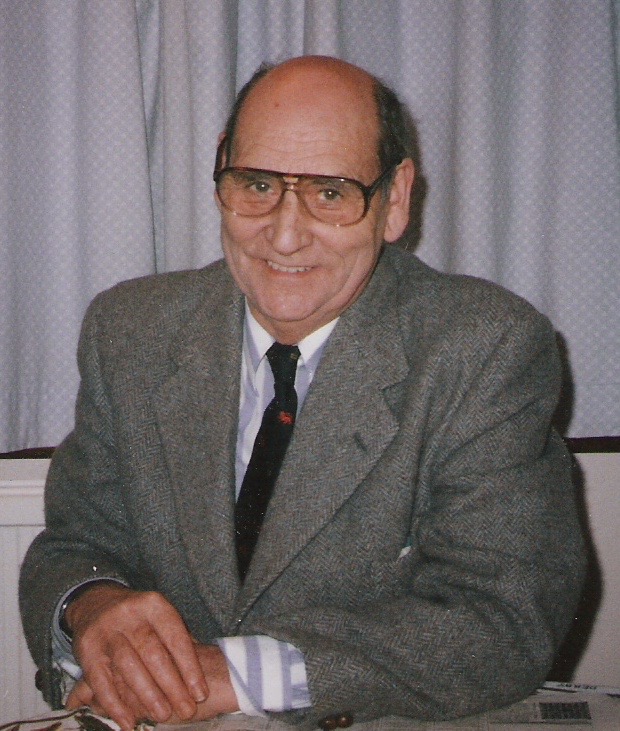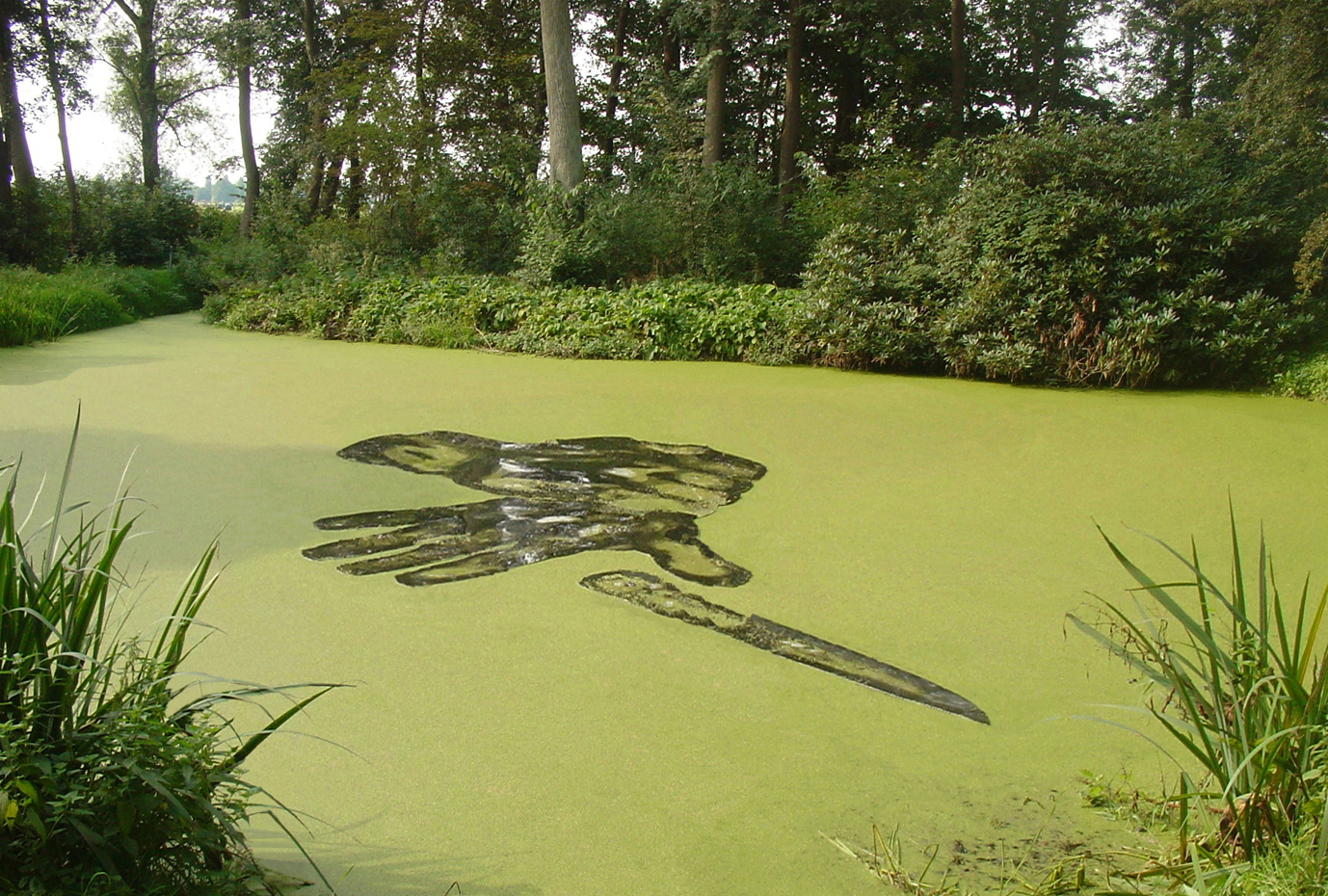|
Poltergeist
In ghostlore, a poltergeist ( or ; German for "rumbling ghost" or "noisy spirit") is a type of ghost or spirit that is responsible for physical disturbances, such as loud noises and objects being moved or destroyed. Most claims or fictional descriptions of poltergeists show them as being capable of pinching, biting, hitting, and tripping people. They are also depicted as capable of the movement or levitation of objects such as furniture and cutlery, or noises such as knocking on doors. Foul smells are also associated with poltergeist occurrences, as well as spontaneous fires and different electrical issues such as flickering lights. They have traditionally been described as troublesome spirits who haunt a particular person instead of a specific location. Some variation of poltergeist folklore is found in many different cultures. Early claims of spirits that supposedly harass and torment their victims date back to the 1st century, but references to poltergeists became more com ... [...More Info...] [...Related Items...] OR: [Wikipedia] [Google] [Baidu] |
Tony Cornell
Anthony Donald Cornell (born 1924, died 10 April 2010, aged 86) was a British parapsychologist and prominent figure in the investigations of ghosts and other paranormal activity across the United Kingdom during the later part of the twentieth century. He appeared in numerous TV documentaries and television debates, and was often the subject of magazine and news articles concerning ghosts and paranormal investigations. Biography Cornell was a leading British expert in parapsychology. With his fellow researchers he attempted to record and measure paranormal events using equipment specifically made for the purpose, incorporating off-the-shelf computing and audio/visual capture devices long before the digital era. Cornell and his associates at the Society for Psychical Research pioneered the study of paranormal activities in the UK and paved the way for subsequent investigations. Tony Cornell was born in Histon, Cambridgeshire in 1924 and educated at The Perse School and Fitzwill ... [...More Info...] [...Related Items...] OR: [Wikipedia] [Google] [Baidu] |
Ghost
A ghost is the soul or spirit of a dead person or animal that is believed to be able to appear to the living. In ghostlore, descriptions of ghosts vary widely from an invisible presence to translucent or barely visible wispy shapes, to realistic, lifelike forms. The deliberate attempt to contact the spirit of a deceased person is known as necromancy, or in spiritism as a '' séance''. Other terms associated with it are apparition, haunt, phantom, poltergeist, shade, specter or spectre, spirit, spook, wraith, demon, and ghoul. The belief in the existence of an afterlife, as well as manifestations of the spirits of the dead, is widespread, dating back to animism or ancestor worship in pre-literate cultures. Certain religious practices—funeral rites, exorcisms, and some practices of spiritualism and ritual magic—are specifically designed to rest the spirits of the dead. Ghosts are generally described as solitary, human-like essences, though stories of ghostly armies ... [...More Info...] [...Related Items...] OR: [Wikipedia] [Google] [Baidu] |
Joe Nickell
Joe Nickell (born December 1, 1944) is an American skeptic and investigator of the paranormal. Nickell is senior research fellow for the Committee for Skeptical Inquiry and writes regularly for their journal, ''Skeptical Inquirer''. He is also an associate dean of the Center for Inquiry Institute. He is the author or editor of over 30 books. Among his career highlights, Nickell helped expose the James Maybrick "Jack the Ripper Diary" as a hoax. In 2002, Nickell was one of a number of experts asked by scholar Henry Louis Gates Jr. to evaluate the authenticity of the manuscript of Hannah Crafts' '' The Bondwoman's Narrative'' (1853–1860), possibly the first novel by an African-American woman. At the request of document dealer and historian Seth Keller, Nickell analyzed documentation in the dispute over the authorship of "The Night Before Christmas", ultimately supporting the Clement Clarke Moore claim. Early life, education and family Joe Nickell is the son of J. Wendell an ... [...More Info...] [...Related Items...] OR: [Wikipedia] [Google] [Baidu] |
Anomalistic Psychology
In psychology, anomalistic psychology is the study of human behaviour and experience connected with what is often called the paranormal, with few assumptions made about the validity (or otherwise) of the reported phenomena. Early history According to anomalistic psychology, paranormal phenomena have naturalistic explanations resulting from psychological and physical factors which have given the false impression of paranormal activity to some people. There were many early publications that gave rational explanations for alleged paranormal experiences. The physician John Ferriar wrote ''An Essay Towards a Theory of Apparitions'' in 1813 in which he argued that sightings of ghosts were the result of optical illusions. Later, the French physician Alexandre Jacques François Brière de Boismont published ''On Hallucinations: Or, the Rational History of Apparitions, Dreams, Ecstasy, Magnetism, and Somnambulism'' in 1845 in which he claimed sightings of ghosts were the result of ... [...More Info...] [...Related Items...] OR: [Wikipedia] [Google] [Baidu] |
Frank Podmore
Frank Podmore (5 February 1856 – 14 August 1910) was an English author, and founding member of the Fabian Society. He is best known as an influential member of the Society for Psychical Research and for his sceptical writings on spiritualism. Life Born at Elstree, Borehamwood, Hertfordshire, Podmore was the son of Thompson Podmore, headmaster of Eastbourne College. He was educated at Haileybury and Pembroke College, Oxford (where he first became interested in Spiritualism and joined the Society for Psychical Research – this interest remained with him throughout his life). In October 1883 Podmore and Edward R. Pease joined a socialist debating group established by Edith Nesbit and Hubert Bland. Podmore suggested that the group should be named after the Roman General, Quintus Fabius Maximus Verrucosus, who advocated weakening the opposition by harassing operations rather than becoming involved in pitched battles. In January 1884 the group became known as the Fabian Societ ... [...More Info...] [...Related Items...] OR: [Wikipedia] [Google] [Baidu] |
Leonard Zusne
Leonard Zusne (1924–2003) was an American psychologist. He published articles and books on the history of psychology, magical thinking and visual perception. Zusne worked as a Professor of Psychology at the University of Tulsa. A critic of paranormal claims, he was influential in the field of anomalistic psychology. Publications *''Visual Perception of Form'' (1970)MacKay, Donald. (1971)''Visual Perception of Form'' New Scientist. 10 June. p. 648. *''Biographical Dictionary of Psychology'' (1984) *''Magical Thinking and Parapsychology''. In ''A Skeptic’s Handbook of Parapsychology''. Edited by Paul Kurtz Paul Kurtz (December 21, 1925 – October 20, 2012) was an American scientific skeptic and secular humanist. He has been called "the father of secular humanism". He was Professor Emeritus of Philosophy at the State University of New York at Buff .... Prometheus Books. pp. 685–700. *''Eponyms in Psychology: A Dictionary and Biographical Sourcebook'' (1987) *''An ... [...More Info...] [...Related Items...] OR: [Wikipedia] [Google] [Baidu] |
Illusion
An illusion is a distortion of the senses, which can reveal how the mind normally organizes and interprets sensory stimulation. Although illusions distort the human perception of reality, they are generally shared by most people. Illusions may occur with any of the human senses, but visual illusions (optical illusions) are the best-known and understood. The emphasis on visual illusions occurs because vision often dominates the other senses. For example, individuals watching a ventriloquist will perceive the voice is coming from the dummy since they are able to see the dummy mouth the words. Some illusions are based on general assumptions the brain makes during perception. These assumptions are made using organizational principles (e.g., Gestalt theory), an individual's capacity for depth perception and motion perception, and perceptual constancy. Other illusions occur because of biological sensory structures within the human body or conditions outside the body within one's physi ... [...More Info...] [...Related Items...] OR: [Wikipedia] [Google] [Baidu] |
Memory
Memory is the faculty of the mind by which data or information is encoded, stored, and retrieved when needed. It is the retention of information over time for the purpose of influencing future action. If past events could not be remembered, it would be impossible for language, relationships, or personal identity to develop. Memory loss is usually described as forgetfulness or amnesia. Memory is often understood as an informational processing system with explicit and implicit functioning that is made up of a sensory processor, short-term (or working) memory, and long-term memory. This can be related to the neuron. The sensory processor allows information from the outside world to be sensed in the form of chemical and physical stimuli and attended to various levels of focus and intent. Working memory serves as an encoding and retrieval processor. Information in the form of stimuli is encoded in accordance with explicit or implicit functions by the working memory pro ... [...More Info...] [...Related Items...] OR: [Wikipedia] [Google] [Baidu] |
Wishful Thinking
Wishful thinking is the formation of beliefs based on what might be pleasing to imagine, rather than on evidence, rationality, or reality. It is a product of resolving conflicts between belief and desire. Methodologies to examine wishful thinking are diverse. Various disciplines and schools of thought examine related mechanisms such as neural circuitry, human cognition and emotion, types of bias, procrastination, motivation, optimism, attention and environment. This concept has been examined as a fallacy. It is related to the concept of wishful seeing. Some psychologists believe that positive thinking is able to positively influence behavior and so bring about better results. This is called the " Pygmalion effect". Christopher Booker described wishful thinking in terms of :"the fantasy cycle" ... a pattern that recurs in personal lives, in politics, in history—and in storytelling. When we embark on a course of action which is unconsciously driven by wishful thinking, all ... [...More Info...] [...Related Items...] OR: [Wikipedia] [Google] [Baidu] |
Delusion
A delusion is a false fixed belief that is not amenable to change in light of conflicting evidence. As a pathology, it is distinct from a belief based on false or incomplete information, confabulation, dogma, illusion, hallucination, or some other misleading effects of perception, as individuals with those beliefs ''are'' able to change or readjust their beliefs upon reviewing the evidence. However: "The distinction between a delusion and a strongly held idea is sometimes difficult to make and depends in part on the degree of conviction with which the belief is held despite clear or reasonable contradictory evidence regarding its veracity." Delusions have been found to occur in the context of many pathological states (both general physical and mental) and are of particular diagnostic importance in psychotic disorders including schizophrenia, paraphrenia, manic episodes of bipolar disorder, and psychotic depression. Types Delusions are categorized into four different gr ... [...More Info...] [...Related Items...] OR: [Wikipedia] [Google] [Baidu] |
Donovan Rawcliffe
''The Psychology of the Occult'' is a 1952 skeptical book on the paranormal by psychologist D. H. Rawcliffe. It was later published as ''Illusions and Delusions of the Supernatural and the Occult'' (1959) and ''Occult and Supernatural Phenomena'' (1988) by Dover Publications. Biologist Julian Huxley wrote a foreword to the book. Content The book takes influence from the works of Frank Podmore, Joseph Jastrow and Ivor Lloyd Tuckett dealing with the "fallacies underlying psychical research". Rawcliffe critically examines claims of the occult, parapsychology and spiritualism concluding that they are best explained by psychological factors such as hallucination, hysteria, neurosis and suggestion as well as "delusion, fraud, prestidigitation, and limitless credulity." Rawcliffe found possible naturalistic explanations for all parapsychological experiments he investigated, noting that there is no scientific evidence for any paranormal power. He suggested that many of the results from ... [...More Info...] [...Related Items...] OR: [Wikipedia] [Google] [Baidu] |






